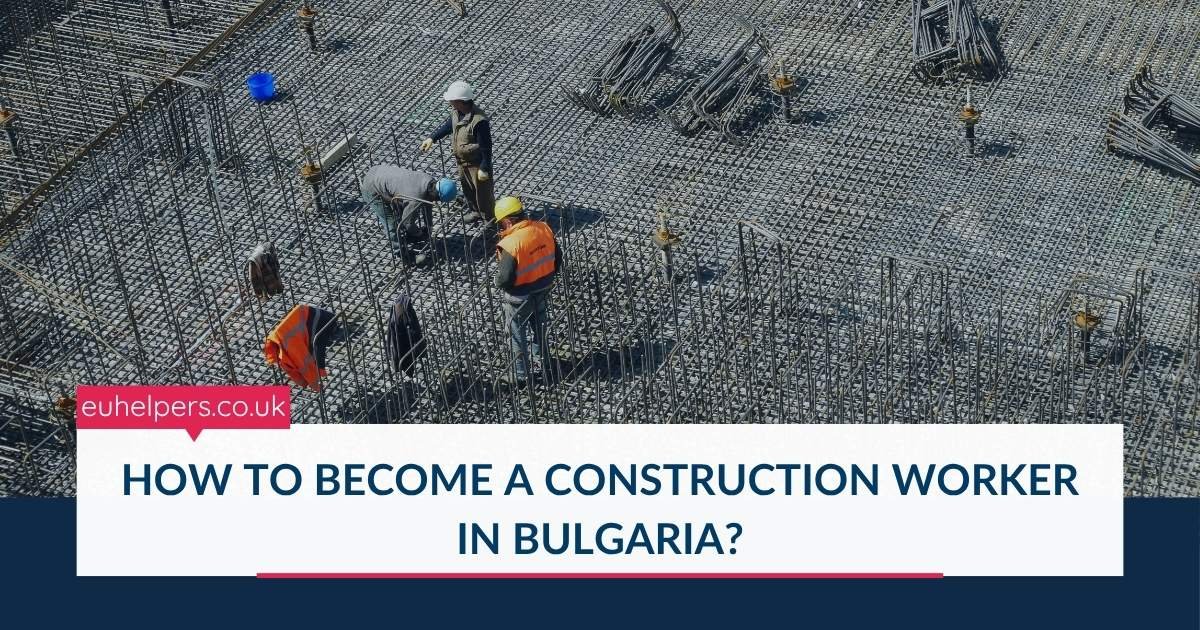Bulgaria's growing construction sector offers job opportunities for both local and international workers, especially as infrastructure, commercial, and residential projects expand. If you're a foreign national interested in pursuing a construction career in Bulgaria, you'll need to follow a structured legal process to work and reside in the country legally.
? Step-by-Step Guide to Working in Construction in Bulgaria
1. Secure a Job Offer
Before anything else, you must find a job and obtain a written offer from a Bulgarian employer. This is the foundation for your work permit and visa application.
-
Search on job portals
-
Target construction firms involved in:
-
Residential and commercial building
-
Road and infrastructure projects
-
Renovation and interior fit-outs
-
2. Employer Applies for Work Permit
Once you have a job offer, the employer must apply for a work permit on your behalf through the Bulgarian Employment Agency. They must prove that the role couldn’t be filled by a Bulgarian or EU/EEA citizen.
3. Apply for a Type D Visa
With an approved work permit, you can apply for a Type D (long-stay) visa at the Bulgarian embassy or consulate in your home country. Required documents typically include:
-
Valid passport
-
Job offer and work permit approval
-
Proof of accommodation in Bulgaria
-
Health insurance
-
Criminal background check
-
Financial means for living expenses
4. Residence Permit Upon Arrival
After entering Bulgaria, apply for a residence permit at the local Migration Directorate. This permit allows you to legally live and work in the country and must be renewed as required.
5. Optional: EU Blue Card
If you have a university degree and a high salary, you might qualify for an EU Blue Card, which grants additional benefits such as longer residence rights and easier mobility within the EU.
6. Register with Local Authorities
If your stay exceeds three months, you're required to register your address with the local authorities.
?️ Key Requirements for Construction Workers
To succeed in a construction job in Bulgaria, you'll need a mix of physical, technical, and interpersonal attributes:
-
Physical Fitness: Construction work is labor-intensive. You’ll need stamina and strength to perform tasks like lifting, carrying, digging, or using machinery.
-
Strong Work Ethic: Employers value punctuality, discipline, and dedication.
-
Adaptability: Sites can be busy and constantly changing—workers must adjust quickly and follow directions.
-
Safety Awareness: Knowing and following safety rules is vital to avoid on-site accidents.
-
Language Skills: Basic Bulgarian or English may be required, especially for understanding instructions and communicating with supervisors.
? Salary Expectations in Bulgaria’s Construction Sector
Salaries for construction workers in Bulgaria vary based on experience, location, and job role. Here's an approximate guide:
| Position | Monthly Salary (BGN) | Approx. EUR |
|---|---|---|
| General Laborer (Entry-Level) | 1,100 – 1,400 BGN | €560 – €720 |
| Skilled Worker (e.g., Mason, Tiler, Steel Fixer) | 1,500 – 2,000 BGN | €770 – €1,025 |
| Foreman/Supervisor | 2,200 – 2,800 BGN | €1,130 – €1,440 |
| Civil Engineer/Technical Staff | 2,500 – 4,000 BGN | €1,280 – €2,050+ |
Note: Wages may be higher in cities like Sofia, Plovdiv, Varna, or for projects funded by the EU or international contractors.
? Additional Tips for Job Seekers
-
Network: Connect with people working in Bulgaria’s construction industry to uncover unadvertised opportunities.
-
Research: Investigate the qualifications or certifications needed for specific construction roles, such as scaffolding, welding, or machinery operation.
-
Document Preparation: Ensure your certificates, police clearances, and other legal documents are translated into Bulgarian and notarized, if required.
-
Use EURES: The EURES portal lists construction jobs across the EU and is often used by employers recruiting foreign workers.
⚠️ Legal Note on Employment Limits
According to Bulgarian labor law, non-EU workers cannot exceed 20% of the average number of local and EU employees in a company over the previous 12 months. This means employers must plan foreign hires carefully and legally.
Becoming a construction worker in Bulgaria can be a practical career move for foreign nationals, offering stable income, legal protections, and a chance to work on meaningful infrastructure projects. By following the legal process and showcasing your skills and work ethic, you can build a solid foundation in Bulgaria’s construction sector.

